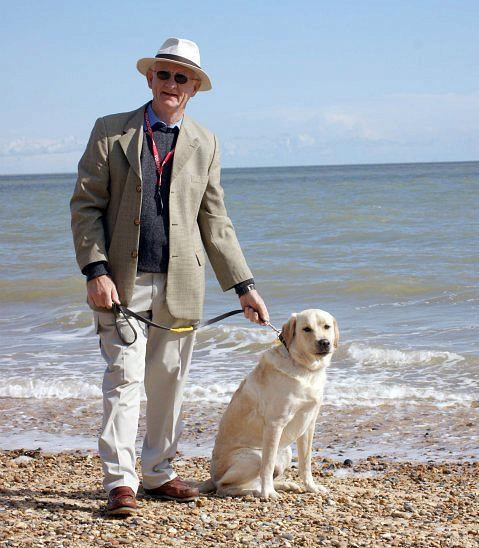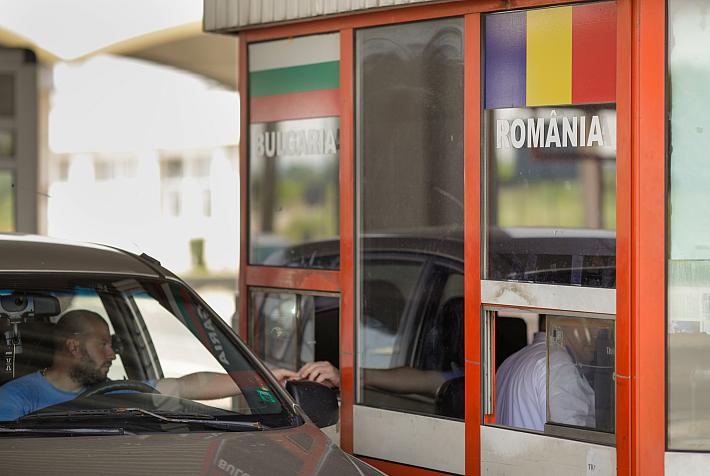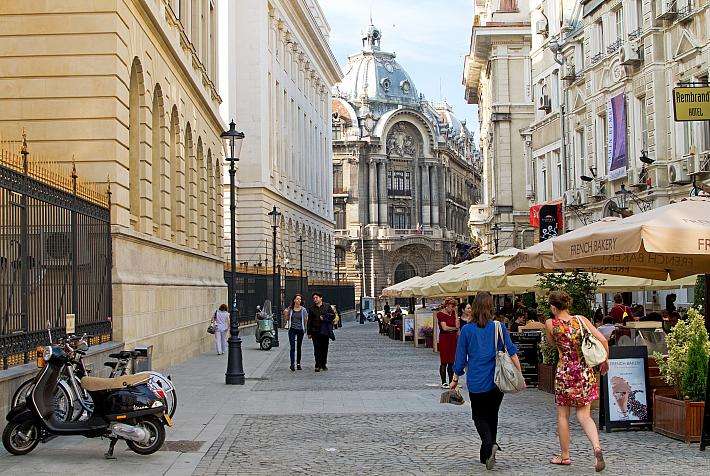Stan Platt, the Brit who found his own Cinderella story in Romania

“Life is not about where you are living, but about what you’re doing for other people.”
Stan Platt was just a kid when he first thought of doing something for others. Although his family was quite wealthy, at some point, due to the bad economic circumstances, they’ve lost their fortune. That is why, when he was just a kid, Stan Platt - now founder of Light into Europe - said to his mother that he wanted to have his own business when he grows up, and rebuild the family fortune. And that he did. In 1971, he started his own business: a large department store which sold almost everything. The store is still open today.
Chief of the air ambulance service
His story in Romania started shortly after the Romanian Revolution. In 1990, Stan Platt came with his own airplane to Romania and flew the air ambulance for the Ministry of Health until 1997 when the Ministry asked him to come and live permanently in Romania.
“So I moved to Bucharest permanently in 1997,” he recalls. And Bucharest became his favorite city and his home.
“Between 1997 and 2004, I was the chief of the air ambulance service in Romania, even though I am British. We flew lots and lots of missions, many of them with doctor Raed Arafat (e.n: founder of the emergency rescue service SMURD)”
That is how Stan Platt re-started the Air Ambulance service in Romania, which was shut down by the local authorities in 1976 when two engineers from Baneasa stole an aircraft and defected to Austria. In 2004, he handed over to SMURD, who carried on the service since.
After the air ambulance, Stan Platt was ready for another chapter in his life which he thought would take place back in the UK. However, his Romanian wife Camelia felt that there is still something to do in her home country. After assessing the local needs, they found two groups that really needed help: the blind and the deaf. They called them the Cinderella groups, as “they have very little help, very little finance, and very little care,” and started working with deaf and blind schools around the country.
And then the idea of guide dogs for the blind came to their minds. Although a challenging project to develop in Romania, Mr. Platt and his wife managed to turn their idea into reality. Their guide dog school now has around 30 dogs, 11 of which are guide dogs for visually impaired people and 2 are seizure dogs for people with epilepsy.
The dogs
Max is one really clever dog: he can guide two people at the same time - a husband and wife from Arad, western Romania. This dog, one of the few in the world that can guide two people at the same time, really changed the spouses’ lives. On some evenings, the husband takes control of the dog, the wife takes the man’s arm, and they go out for long walks in the city. They go to concerts, restaurants, walks by the river. Things they could never do on their own. Not without risking to get hurt anyway.
“Veronica, the wife, said to us: ‘At last, we can have a romantic evening without another person being present. Just the dog’,” Stan Platt says.
Imagine that you can’t see anymore, that it’s just dark around you, and the simple things like getting dressed or cooking a meal become almost impossible. That’s when the guide dogs can re-start your life. However, the Romanian society doesn’t quite seem to understand how important a guide dog is for someone who can’t see. How the dog is no longer a simple pet, but the owners’ eyes.
And, sometimes, unpleasant things happen. For example, Max’s owners had to come to Bucharest to a Light into Europe event and booked train tickets for the sleeping car. Once they arrived at the train, excited that they can go on this adventure alone, the conductor didn’t allow them to go into the sleeping car with the dog. This, according to Mr. Platt, is against the law. However, the two decided not to argue and sit all the way from Arad to Bucharest in a regular car.
And, unfortunately, this is not an isolated case, because of the society’s lack of compassion, understanding, and respect.
“Having a guide dog is so life-changing. A life restart. Being able to do the simple things other people take for granted."
Despite the institutional and economic barriers, and these unfortunate daily episodes, Mr. Platt and his wife, together with their team made of dog trainers and volunteers, plan to continue their work. They love being part of this change.
The Light into Europe team also works with most of the schools for the blinds in Romania. One thing they do is take ordinary school textbooks and enlarge the text to very big fonts so that those young people and children who have a little sight left can actually read the text. Then, they also supply orientation and mobility lessons, teaching the visually impaired children how to get around, make a cup of tea or use the toaster.
“Because it’s all about independence, independent living and the ability to be independent,” Stan Platt says.
To have the necessary funds for all these projects, the Light into Europe team organizes several charity events in Romania: Burns Supper, Caledonian Ball, Bonfire Night, St. George's Day.
Beautiful local traditions - now lost
Stan Platt loves Romania and the Romanians, the local food and the hospitality here. However, he admits that Romania has changed a lot since 1990. While some things changed for the better, some of its beautiful traditions are getting lost.
“I will always remember my first visit to Cluj, in 1990. We stayed in an apartment where the lady had a large cupboard that was full to the brim of zacusca (e.n. vegetable spread popular in Romania) and pickles and gems. And we went across the road to the bread factory and got some hot bread. And she got that zacusa out, and the hot bread… And I can still taste it even today it was so wonderful. I am a little concerned that, because there is much more consumerism today, people are not making zacusca in the same way. They are going to the supermarket and buy something because it’s quicker and easier. So, I am worried that some of your wonderful traditions are going to be lost in the younger generations.”
Back in 2012, Stan Platt was awarded the Order of the British Empire (OBE) by the Queen Elizabeth II for his work with visually impaired people in Romania.
Irina Popescu, irina.popescu@romania-insider.com
(photo: courtesy of Stan Platt)












